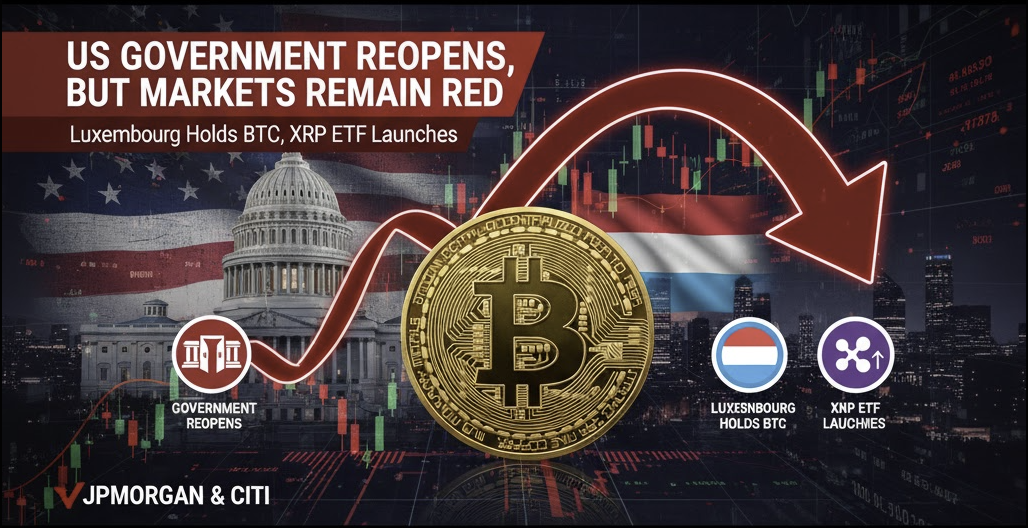Market Overview
On Thursday (June 5, U.S. time), all three major U.S. stock indices closed lower, with the Nasdaq falling the most at 0.83%. Oil futures edged down but stayed around $63 per barrel, while gold rose slightly to $3,384 per ounce.

U.S. jobless claims came in at 247,000 last week, higher than the 236,000 estimate and above the prior week's 239,000, indicating slight softening in the labor market. Meanwhile, continuing jobless claims slightly decreased to 1.904 million, just under forecasts. The data presents a mixed signal: first-time claims rose, but fewer people are staying on unemployment, suggesting a still-resilient labor market with signs of adjustment.
Bitcoin dropped to around $102,000, with many major altcoins seeing steeper declines. Total crypto market capitalization now stands at $3.328 trillion.

A notable $983 million in leveraged long positions were liquidated over 24 hours, highlighting elevated volatility in crypto markets. However, Bitcoin heatmaps indicate accumulation is resuming across all wallet sizes, especially from wallets holding over 1,000 BTC which had previously shown signs of distribution.

Bitcoin spot ETFs saw outflows of $278.4 million on Thursday, while ETH spot ETFs continued to attract inflows, totaling $11.3 million.

Elon Musk vs. Donald Trump: Budget Battle and Policy Fallout
Tensions have escalated between Elon Musk and President Trump following Musk’s repeated criticism of Trump’s massive federal spending bill. Trump fired back, accusing Musk of betrayal after learning the bill would phase out mandatory subsidies for electric vehicles — a sector deeply tied to Musk’s business interests. In response, Musk slammed the bill as “bloated and unfair,” pointing out fossil fuel subsidies remain intact and demanding a leaner, fiscally responsible alternative.

Trump took the fight further, threatening to cancel all government contracts and subsidies for Musk's companies, branding Musk “past his prime” and accusing him of outrage due to lost benefits. Musk immediately rejected Trump’s claims, saying he had not even seen the draft of the bill and calling Trump’s accusations baseless.
In addition, Musk warned that Trump’s proposed tariffs could drag the U.S. into a recession by late 2025. He even made veiled references to Trump’s alleged ties to the Jeffrey Epstein scandal — further intensifying the political feud.
The media frenzy around the Musk–Trump clash has overshadowed critical economic signals and consumer trends. Their public dispute not only dominates headlines but also introduces new layers of uncertainty into financial markets, particularly when it distracts from core economic data and policy decisions.
U.S.–China Diplomatic Call: Trump and Xi Reconnect
Amid rising global tensions, President Trump and Chinese President Xi Jinping held a 90-minute phone call that both parties described as constructive. Chinese state media reported that President Xi reaffirmed China’s compliance with the Geneva Agreement and emphasized reducing misunderstandings and external noise in bilateral relations.

Xi urged the U.S. to lift “negative measures” imposed on China and extended an invitation for President Trump and the First Lady to visit China in the near future. Trump expressed appreciation for the invitation and affirmed his willingness to improve diplomatic ties.
Both leaders agreed to initiate a new round of negotiations aimed at fostering stronger cooperation and mitigating economic friction between the world’s two largest economies.
Institutional Bitcoin Accumulation Accelerates
According to a report by Standard Chartered, 61 publicly traded companies now hold a combined total of 673,900 BTC — roughly 3.2% of the entire Bitcoin supply. In just two months, institutional BTC holdings jumped by over 50,000 BTC, indicating rapid accumulation exceeding even that of MicroStrategy.

Notably, many of these firms bought BTC at average prices above $90,000 — higher than MicroStrategy’s average of $70,000. Michael Saylor commented, “Not taking risk is itself a risk,” while Binance founder Changpeng Zhao emphasized that this risk is manageable.
Institutional filings also reveal substantial exposure to both Bitcoin and Ethereum spot ETFs, based on U.S. SEC 13F disclosures. This trend underscores growing institutional conviction in crypto as a core component of diversified portfolios.
The willingness to buy Bitcoin at higher valuations reflects a strategic shift: institutions increasingly view BTC not as a speculative asset, but as a long-term reserve asset with inflation-hedging properties.
Key Global Updates
Circle Internet Financial raised $1.05 billion in its U.S. IPO, valuing the company — issuer of USDC — at around $8 billion. The IPO adds new momentum to the regulated stablecoin narrative in U.S. markets.
The European Central Bank cut interest rates by 25 basis points to 2%, marking its eighth consecutive cut. Denmark's central bank followed suit, lowering rates from 1.85% to 1.6%.
Bluebird Mining Ventures announced plans to convert future Philippine gold revenues into Bitcoin. The company will hold BTC as a treasury asset, aligning its strategy with digital gold adoption.
Chinese travel and ride-share firm Webus International filed with the SEC to raise up to $300 million for XRP purchases and to integrate Ripple’s payment network into its booking system. This cross-border payments integration highlights growing utility-based adoption of crypto infrastructure.
Swedish med-tech firm H100 Group added 7.7 BTC to its balance sheet, bringing total holdings to 13.95 BTC — part of a long-term reserve strategy.
Romania’s national postal service launched a pilot project with BTR Exchange to install crypto cash deposit ATMs across regional branches, starting in Tulcea. The initiative aims to increase crypto accessibility in underbanked communities.
Trump’s digital asset advisor Bo Hines recently met with El Salvador President Nayib Bukele to discuss Bitcoin strategies and El Salvador’s progress in crypto adoption.
As the political clash between Trump and Musk garners headlines, underlying market trends point to a shift toward digital asset adoption at the institutional and sovereign level. The Trump–Xi phone call marks a potential thaw in geopolitical tensions, while economic data continues to challenge Fed rate expectations. Meanwhile, the accumulation of Bitcoin by publicly listed firms and the expansion of crypto integration into traditional sectors underscore the strengthening foundation of the crypto market.
Disclaimer
This article is for informational purposes only and does not constitute financial advice. Please conduct your own research before making any investment decisions.


.png)





